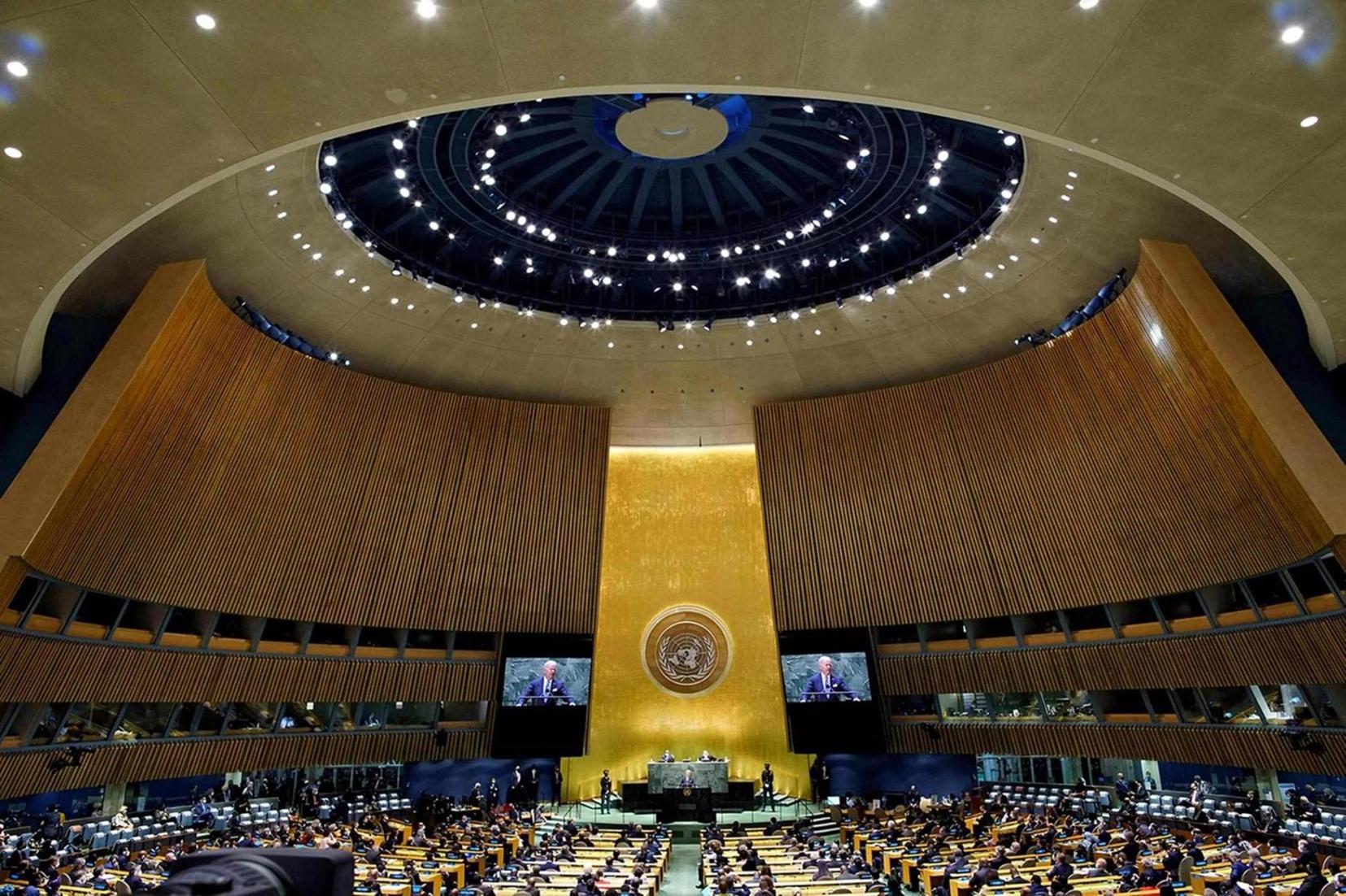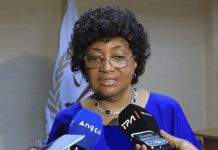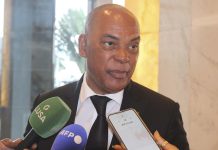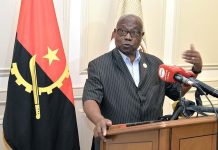Africa-Press – Angola. The head of the United Nations Multidimensional Integrated Stabilization Mission in the Central African Republic (MINUSCA), Valentine Rugwabiza, called for the implementation of the peace strategy, within the scope of the Luanda Roadmap.
The also special representative of the UN Secretary-General, who was speaking at the Security Council session on the situation in CAR, on Thursday, said it was intended to guarantee the effectiveness of the ceasefire and the renunciation of violence, with the support of the Conference. International Conference on the Great Lakes Region (CIRGL).
Valentine Rugwabiza called for the lifting of the ban on night flights, stressing that they are essential for the safety of blue helmets, humanitarian actors, civilians and people with humanitarian needs.
The official emphasized the need for a critical analysis of the progress achieved in the implementation of the strategic priorities of the MINUSCA mandate, to safeguard the gains in the implementation of the mandate, prospects of decentralization of the political and peace process and the extension of State authority.
In terms of security, he said that the mission’s preventive and proactive approach allowed the territorial administration to function and the interruption of supply routes for armed groups.
“MINUSCA will continue to support the redeployment of internal defense and security forces in accordance with a policy of due diligence and with respect for human rights”, he reinforced.
During his speech, Valentine Rugwabiza expressed concern about the resurgence of activities by armed groups, ensuring that the mission is carrying out joint operations with national defense and security forces to repress these threats, protect civilians, facilitate humanitarian assistance and support the disarmament, demobilization and reintegration program.
In this context, he referred that on September 14, dialogue began between the President and the leaders of 11 armed groups with a view to their dissolution.
Valentine Rugwabiza urged the Council and other Member States to increase their financial support and provision of expertise to the Court, taking into account progress in restoring State authority, including redeploying defense and security forces and civil servants, strengthening the justice and promotion of transitional justice mechanisms.
For her part, the minister for Foreign Affairs, Francophonie and Central Africans abroad in the Central African Republic, Sylvie Baipo Temon, said that the political process for peace remains a priority for the Government of her country.
The official said that the International Conference on the Great Lakes Region – CIRGL and the Luanda roadmap have revitalized the peace process in her country, citing a joint timetable for each component: armed groups, repatriation, demobilization, border control and restoration of state authority.
In the course of the debate, the US representative defended the continuation of sanctions against CAR until the authorities resolve the issue of cross-border arms trafficking.
The representative of the Russian Federation stressed that the current sanctions regime must be modified, adding that the arms embargo must be completely lifted.
For his part, the representative of Gabon, Michel Xavier Bian, condemned the attacks against MINUSCA personnel, pointing out that such acts could constitute war crimes.
The also Chairperson of the Security Council for the month of October, speaking on behalf of the A3 (Gabon, Ghana and Kenya), welcomed the positive developments, including through the holding of hearings in Bangui and Bouar and the Special Criminal Court, as well as MINUSCA’s support to the Truth and Reconciliation Commission.
Angola presides over the Great Lakes Region International Conference and has multiplied initiatives to pacify the region.
In that capacity, the Angolan Head of State, João Lourenço, was mandated by the African Union to mediate the conflict.
The International Conference on the Great Lakes Region (CIRGL) was created with the aim of resolving issues of peace and security, after the political conflicts that marked the region in 1994.
CIRGL members are Angola, Burundi, Democratic Republic of Congo, Central African Republic, Rwanda, Sudan, South Sudan, Tanzania, Uganda, Zambia and Republic of Congo.
For More News And Analysis About Angola Follow Africa-Press






